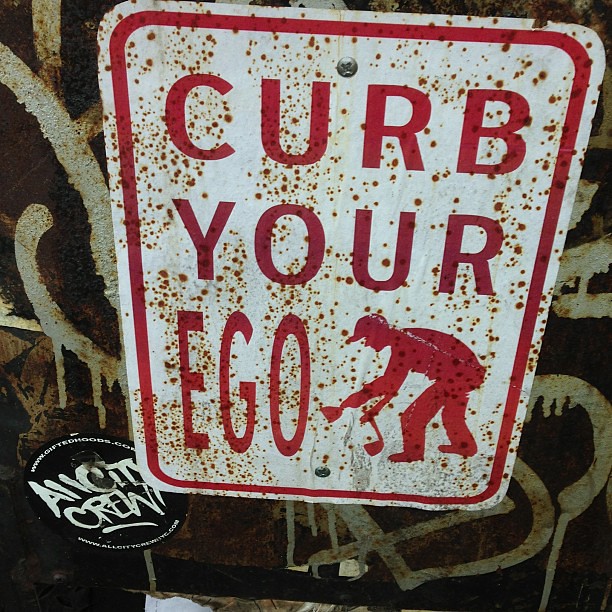TEACH WITHOUT EGO?
Since returning from Lake Qinghai and the grasslands of Tibet. I have been contemplating this idea deeply, using it as a mantra to keep me grounded in a variety of scenarios.
Because, as a teacher, it's amazing how often I bump into my ego. Not to mention the egos of my colleagues. The worst is when you encounter two egos in the hallway duking it out, however politely. You know it's time to back away slowly.
What is "ego"? It is a projection of the self, a self that is separate and different and special from the other selves in this world. It is the source of identity and self esteem. It is the driver of the question, "Who am I?" Its importance is culturally constructed and particularly celebrated in modern America.
It is also divisive and a barrier to compassion. It is at the root of exclusion, indifference, and hate. It breeds insecurity, fear, jealousy, and competition. And as teachers, it can be a detriment to our practice.
There are a good articles on this idea, from teachers of various disciplines:
"...the role of teacher is one in which you gain satisfaction through observing the learning of your pupils."
But it's hard. Because don't we teach who we are? Don't we need to "guide [students] with a strong sense of self?"
The danger is this:
The ego can exist in two states – one, wherein it is aligned with the higher consciousness and the other, where it is not in alignment with this consciousness.
When the ego is aligned with the higher consciousness, there is just a quiet assertion of the individual self in a particular direction, which it knows intuitively is right for the fulfilment of its life purpose. This assertion is based on love and faith and leads to a harmonious state of goodwill and cooperation for the greater common good. When it is not aligned with the higher consciousness, the ego can really wreak havoc. It can misguide and misinterpret. Propelled by emotions based on fear and insecurity, it can cause action motivated by the desire for applause, attention, getting ahead of competition, reaching the finishing line first, proving one’s superiority over others, etc. Here, the ego is intensely conscious of the other and derives its identity in comparison with the other. The individual self asserts itself purely from the need to create a position of unassailability from which it cannot be dislodged.
When I joined my current school I entered into a team teaching situation that I greatly underestimated for its difficulty. I have come to realize that 99% of any angst I feel at work can be traced back to my ego. Desires to be recognized, respected, and right can be strong. Self-preservation seems sensible and competition seems healthy. A twinge of resentment over a close relationship or individually achieved success seems normal. Suspicion of new colleagues and initiatives seems expected. Giving priority to the activities and topics I prefer seems logical. But when these emotional responses interfere with my ability to focus on what is best for my students and their learning, my ego is the one that needs to back down.
In those moments I am learning not to fight, not to defend, not to protect, not to promote. I am learning to let go. When "I" am at the center of my practice, the world my students and I are creating together feels fragile and destabilized, tilted in the direction of a self-concerned perspective. When my students are at the center of my practice, our world seems infinitely more solid.
In pursuing this idea, I meditate on these questions:
- In what ways does my ego support the development of my teaching practice?
- In what ways does my ego impede the development of my teaching practice?
- In what ways does my ego improve my relationships with students and colleagues?
- In what ways does my ego make relationships with students and colleagues more difficult?
- In what ways can I work with greater compassion?


No comments:
Post a Comment